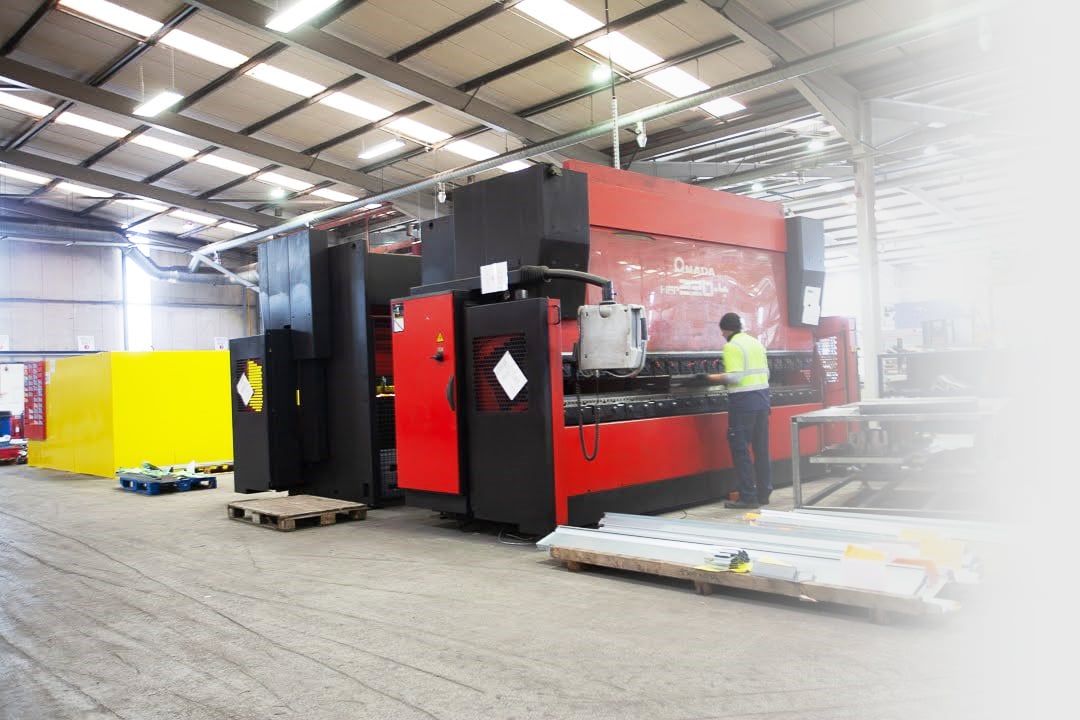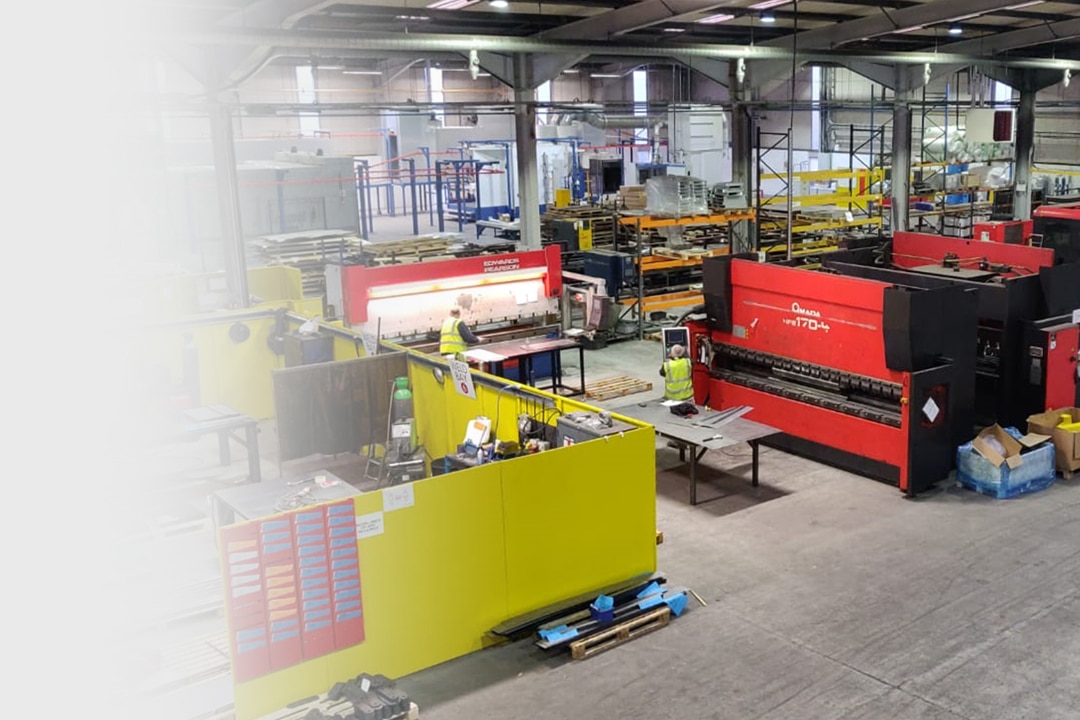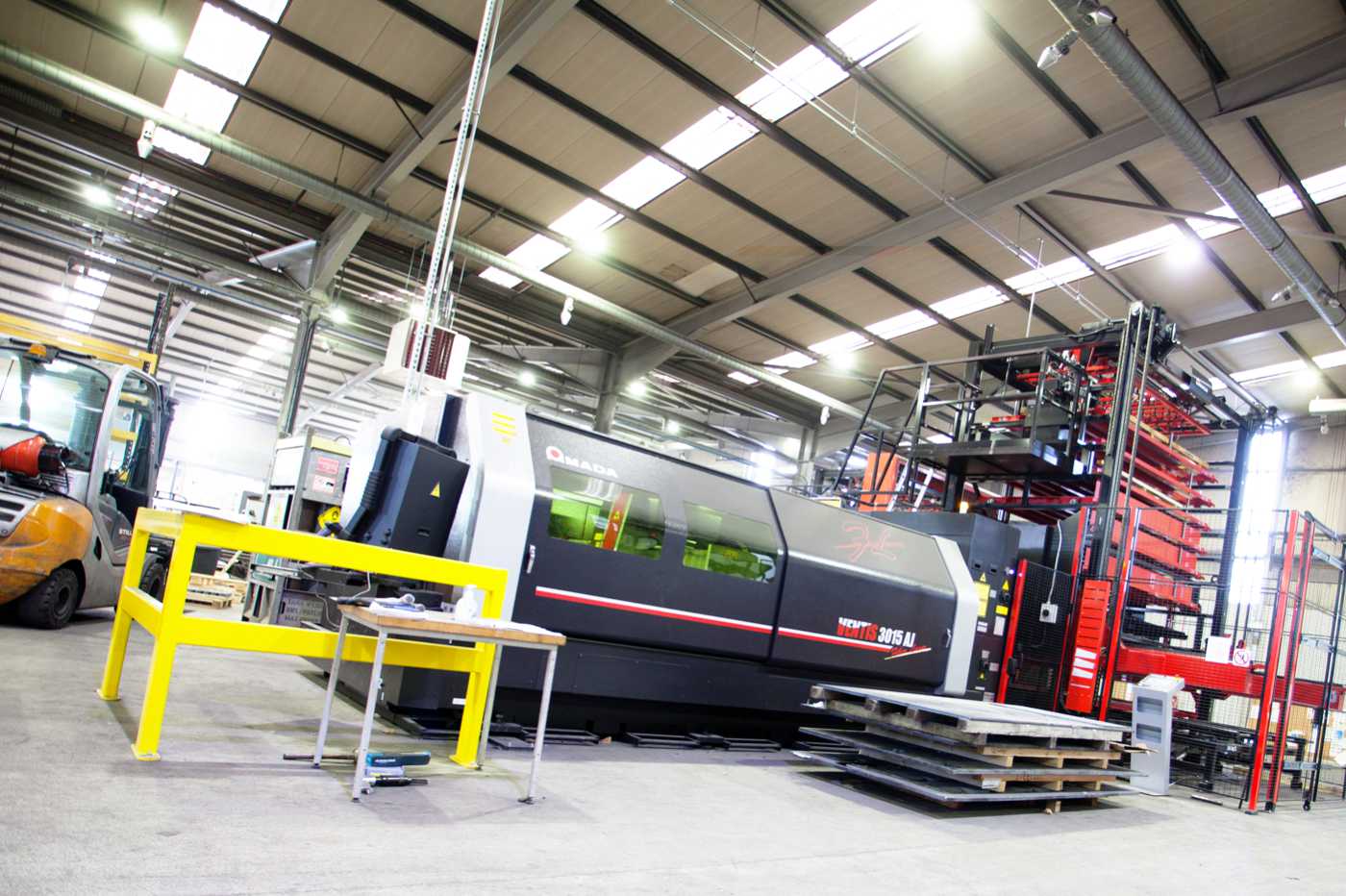20 Years of Experience
We work as genuine partners, experience honesty, quality and trust with us.
Precision and Efficiency
Efficient, accurate programming for high-quality production in all batch sizes.
Customised and Metal Forming Solutions
We specialise in custom-made, detailed components, delivering solutions that meet clients' specific needs.

CNC Sheet Metal Forming
Our Amada Press Brake facilities combine power with flexibility and precision
We've been providing professional CNC metal forming service to clients across a wide range of sectors since 2003. In that time, we’ve established an industry-leading reputation for combining engineering know-how and hands-on experience with a commitment to always utilising the latest technology.
Based in the West Midlands, our CNC forming is delivered via state-of-the-art press brakes which utilise technology such as Amada’s network solution to increase press brake productivity without risking the accuracy we know our clients rely upon.
Wide range of systems
Depending on the CNC press brake being used for a particular project we can rely on a patented instant reactive parallel beam deflection system or Amada’s wireless Digipro instant angle correction system in order to ensure consistent bending accuracy.
Clients working in sectors such as conveyors and heat displacement systems rely on Wrekin to be able to form components, parts, and finished items that meet the strictest tolerances no matter how large the production run needs to be.
CNC Metal Forming Solutions
A key aspect of the CNC metal forming solutions we offer is that they are only one part of a suite of solutions including CNC punching, CNC laser cutting, metal finishing, and fabrication services.
The full-service way in which we work enables us to develop a deep understanding of the needs of our clients and of the role which any individual project will play in their wider business. This kind of understanding means that we work as genuine partners offering a professional service, rather than simply meeting a specific one-off brief.
Create highly complex and detailed components
The precision of our CNC metal forming facilities enables us to create the kind of highly complex and detailed components our clients need. Our press brakes can be programmed manually or via angle 2D and 3D graphics simulation which, when combined with a flexible multi-axis down-stroking press brake, means that we can work at speed and in bulk while maintaining the highest quality from the first item to the last.

Metal Forming FAQs
Does your business require components or parts made from metal? These might include electronic components of machinery for heavy industries. Sheet metal forming does not change the dimensions of the metal or its material composition; instead, it uses machinery to manufacture new shapes. The process involves changes to the surface properties of the metal.
Sheet metal forming and metal forming machines are used to create a variety of component parts as well as industrial machinery. Some of the products include tubes, pipes, sheets, fasteners, and wires; there are also industrial presses, rollers, benders, and more. If you want to know if a product can be manufactured by metal forming, get in touch with Wrekin Sheetmetal.
Metal forming processes can be categorized into two broad types: bulk forming and sheet forming. There are two main types of metal forming. Bulk-forming is the process of forming metal with a surface-to-volume ratio, such as bars, tubes, and billets. On the other hand, sheet metal forming is used for metal with a high surface-to-volume ratio, such as panels, frames, and appliances.
Sheet metal forming is the process of shaping sheet metal while it is still in a solid state. There is a variety of processes to carry out the task. These include the following:
Bending: Uses the plasticity of metal to form new shapes without affecting the volume.
Curling: This is a process that adds a hollow circular roll to the rough edges of metal.
Ironing: Ironing involves a press that thins metal sheets to turn them into cans and more.
Laser Cutting: Use of laser to cut sheet metal accurately for use in a range of applications.
Hydroforming: Uses a high-temperature press to squeeze metal into convex and concave.
Punching: Forms and cuts metal by passing the sheets through a word press.
An advantage of metal forming is the metal formed with these processes is stronger and more resilient than plastic. Another advantage of metal forming is it creates products that are resistant to heat and more efficient.
A disadvantage is the initial cost of metal forming equipment can be expensive. Another disadvantage is metal is molten and vicious; there is less flexibility with shapes and designs.
Bench top budget brakes: A wide bench has an upper and lower fixed beam to bend metal.
Bracket markers: Uses ninety-degree tools and radius to create brackets and other shapes.
Shrinker stretches: A common metal shaping tool that uses heating, cutting, and welding.
Metal forming processes can be applied to various metals such as stainless steel, galvanized steel, aluminium, brass, and copper. It’s important to choose the correct metal for product creation; for instance, aluminium must be used for cans instead of one of the alternatives.
Metal forming can be more expensive than plastic at the outset, but it provides better quality and longevity for your customers. If you require large quantities, sheet metal is highly cost-effective.
Still have questions? Email us on sales@wrekinsheetmetal.co.uk
